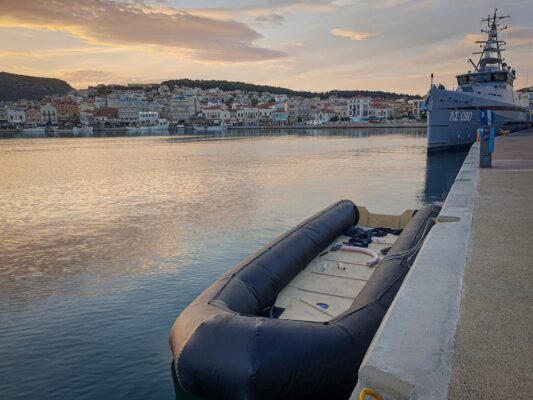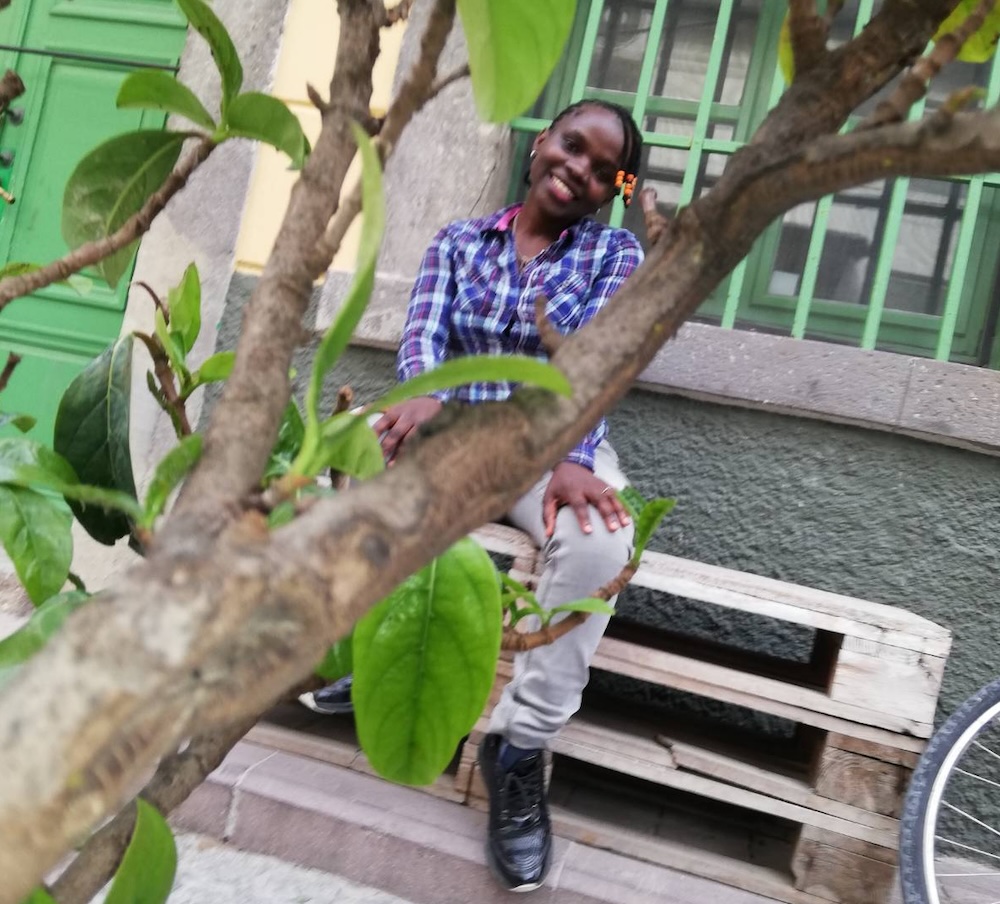Search
To search for an exact match, type the word or phrase you want in quotation marks.
A*DESK has been offering since 2002 contents about criticism and contemporary art. A*DESK has become consolidated thanks to all those who have believed in the project, all those who have followed us, debating, participating and collaborating. Many people have collaborated with A*DESK, and continue to do so. Their efforts, knowledge and belief in the project are what make it grow internationally. At A*DESK we have also generated work for over one hundred professionals in culture, from small collaborations with reviews and classes, to more prolonged and intense collaborations.
At A*DESK we believe in the need for free and universal access to culture and knowledge. We want to carry on being independent, remaining open to more ideas and opinions. If you believe in A*DESK, we need your backing to be able to continue. You can now participate in the project by supporting it. You can choose how much you want to contribute to the project.
You can decide how much you want to bring to the project.

No one wakes up one day and decides to leave behind their home, family, friends, and all their childhood memories to move to a foreign country where they can’t even explain their pain to a doctor. But sometimes, we have no choice. We flee our countries in search of safety, only to find more suffering along the way.
I left my home country thinking Turkey would be safe—but that was a lie. In Turkey, I experienced racism for the first time. On the bus, Turkish people refused to sit near me, holding their noses as if I smelled like garbage. Then, things got worse. I was imprisoned for two months for not having papers.
Prison life was dehumanizing. Everything was controlled—when we could go out for fresh air, when we could eat. We were six adults and two children crammed in a small cell. Breakfast, lunch, and dinner were strictly timed: a piece of bread, some soup, one bottle of water. The babies cried at night from hunger, but the guards just shouted at their mothers in Turkish.
After two months, they called my name and handed me papers to sign. I was “free”—but only for 30 days before deportation. I couldn’t go back home; it would mean death. With nowhere to go, I followed a girl I met in prison. I had only $100 to my name, which I gave to her, hoping she’d help me reach safety.
We took a bus, then a taxi, arriving at a filthy, overcrowded house in a remote village. The place was freezing, infested with bedbugs, and filled with desperate people from different countries. Police patrolled outside, so we couldn’t leave. People fought out of frustration and despair.
After two days, smugglers packed us into a van—no windows, no seats, just standing in darkness. We drove for hours before walking through bushes to the sea. A small, shaky boat waited for us. We climbed in, praying it would hold us until the shore in front of us.
But the Greek coastguards found us first. They tied our hands and legs, searched us violently—even the children—stole our phones, money, and belongings, then abandoned us on a deserted island between Turkey and Greece. We walked for hours, starving and freezing, until Turkish police found us and locked us up again.
The Second Attempt
Back in Izmir, I had no choice but to return to the same smuggler’s house. Days later, we were taken to a forest, where we hid for three days in pouring rain. Then, at night, we were rushed to the sea.
The boat was overloaded—53 people when it should have held 20. The engine failed multiple times. The wind and waves nearly capsized us. People screamed, some wanted to turn back, others refused—going back meant prison or worse.
Miraculously, we evaded the coast guard and reached Greece. We jumped onto sharp rocks, helping each other out of the sinking boat. Then we ran, terrified of being caught.
The Camp
After hours of waiting, we were taken to a quarantine camp. For two weeks, we were locked in, then moved to a crowded tent camp—men, women, and children all together. Only after registration were we separated, but conditions were still harsh.
Coming to Greece alone, seeking safety, I never imagined the conditions I would face. The camp was my first reality—a cramped tent shared with eight others, crawling with cockroaches and mice. The food was barely edible, something even a dog would refuse. Winter brought freezing winds that shook the tent violently, while summer turned it into a suffocating desert.
The worst part? Sharing toilets and showers with men, making nighttime trips unsafe. Some days, there was no water at all. Imagine a camp full of people, all relying on the same filthy, overflowing bathrooms with no way to wash. At Pagani, we waited outside for interviews—rain, snow, or scorching heat—while security guards sat comfortably inside air-conditioned offices.
When I finally got my asylum status, the struggle didn’t end. First, I had to pay for fingerprints—money I didn’t have. In the camp, no work was allowed, no financial support given. NGOs helped with documents, but as soon as my papers were ready, the pressure began: *”When are you leaving the camp?”* I had nowhere to go. That’s when I realized how easy it is to become homeless in Europe. Many people do things they never imagined just to survive.
If not for my European friends, I would have been on the streets. They took me in, and strangers became family. Living together was an adjustment—shared bathrooms full of shampoos but no sponges (apparently, white people don’t scrub!). Our Sunday “breakfast” at noon confused me—was it lunch? One friend cooked beans with peanut butter, another made eggs with tomatoes, and coffee was served with milk and ice. In summer, we went to the beach, laughing like any other group of friends.
But outside that safe space, reality was harsh. Police stopped me at the ferry, checking my bag, asking if I carried drugs. Others walked past freely—was it because of my skin? Who decided all Black people are suspects? Racism followed me to job searches too. With refugee papers, opportunities vanished. Employers saw my color before my skills. Long hours, low pay, degrading conditions—jobs citizens refused were “good enough” for us. Who said refugees can’t be teachers, doctors, or bank tellers?
The hardest lesson? Life doesn’t pause for pain. Pushbacks, deaths at sea, exhaustion—you grieve, then keep moving. We arrive hoping for happy endings but end up pretending just to survive. Yet in this struggle, we find strength we never knew we had.
I survived, but the memories haunt me. The fear, the violence, the humiliation—no human should endure this. Yet, here I am, still searching for safety, still hoping for a life where I’m treated as a person, not a burden.
This is the reality for so many. We don’t risk our lives because we want to—we do it because we have no other choice. To anyone at the border, drowning in despair: You’re not alone. It’s okay to be tired. But don’t give up on yourself.

Shalu, living in Lesvos for two years, laughs at everything—even the darkest stuff. It’s not always funny, but smiling keeps the tears at bay. I stay relentlessly busy—work, errands, cleaning—anything to avoid silence, because in the quiet, the pain screams.
"A desk is a dangerous place from which to watch the world" (John Le Carré)